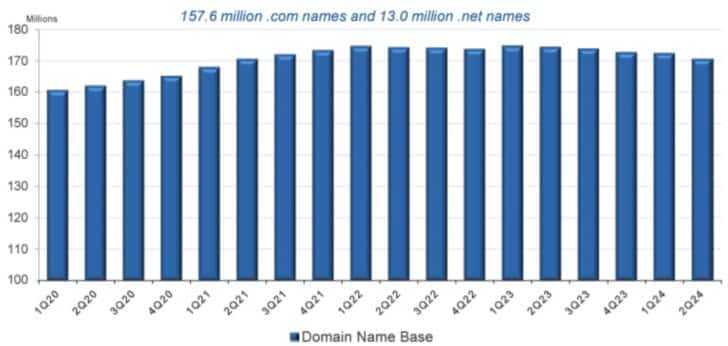Amended complaint doesn’t explain how domain actually expired, and there’s another key thing missing.

Earlier this month, the judge overseeing a cybersquatting dispute for trx.com gave JFXD TRX one final chance to clarify things. I don’t think she’ll be happy with the result that was filed yesterday.
Background
Loo Tze Ming bought the domain name trx.com for $138,000 in April 2022 at domain marketplace 4.cn.
In October 2022, Fitness Anywhere LLC, a company going through bankruptcy that claimed rights in TRX, filed a cybersquatting claim under UDRP. The following month, the panelist awarded the Complainant the domain name in a controversial decision.
Ming overlooked the dispute notice and didn’t respond, so he sued Fitness Anywhere in Arizona to stay the transfer.
Then, in February 2023, a company called JFXD TRX ACQ LLC, which described Fitness Anywhere as its predecessor in interest, filed an in rem lawsuit against trx.com in Virginia, where the .com registry is based.
Given the ongoing suit in Arizona, it was odd that JFXD TRX filed an in rem suit against the domain name because it knew who the domain owner was and how to contact him.
Ming successfully petitioned the court to move the in rem case to Arizona, where he filed his original lawsuit.
Moving the case was key because Arizona is in the Ninth Circuit. There’s precedent in the Ninth Circuit that the original registration date of a domain is the relevant date for a case under the Anticybersquatting Consumer Protection Act (ACPA).
Trx.com was registered in 1999. The plaintiff got trademark rights in the second-level domain term TRX sometime after that, and then Ming bought the domain years after the trademark was established. However, according to the Ninth Circuit, because the original registration in 1999 predated the plaintiff’s trademark rights, the plaintiff can’t win.
A first chance to clarify
In January, the judge overseeing the case asked JFXD TRX to explain a couple of things.
First, she asked how, under Ninth Circuit precedent, a domain registered in 1999 before it got trademark rights violates the ACPA.
Second, she asked for clarification on the relationship between Fitness Anywhere and JFXD TRX.
The relationship between the parties is interesting. The plaintiff’s lawyer, Alain Villeneuve, has represented both Fitness Anywhere and JFXD TRX. But there’s confusion about which entity owned the trademarks and at what time. The judge wrote (emphasis mine):
The filings in this case, as well as the filings in the case pending before Judge Logan [the case Ming filed to stay the UDRP transfer], show some confusion regarding the current owner of the TRX-related property and the proper defendant for Ming’s challenge to the order transferring trx.com. According to statements made by Mr. Villeneuve, Fitness Anywhere owned all TRX-related property, including the TRX trademarks, until it sold that property to JFXD in August 2022. Despite no longer owning any TRX-related property, in October 2022 Mr. Villeneuve initiated a domain name dispute proceeding on behalf of Fitness Anywhere. During those proceedings Mr. Villeneuve stated Fitness Anywhere was “the owner of the famous trademark TRX.” That administrative proceeding resulted in an order that trx.com be transferred to Fitness Anywhere. If Fitness Anywhere no longer owned the TRX-related property prior to the administrative proceeding, it would appear the transfer order was improper. If, however, Fitness Anywhere did own the property and continued to own the property, Ming’s claims against Fitness Anywhere pending before Judge Logan are the proper avenue for resolving ownership of trx.com. In that situation, however, JFXD’s current complaint is improper because JFXD does not own the TRX-related property. In explaining why its complaint does not state a claim for relief, JFXD must explain the conflicting positions adopted by Mr. Villeneuve. In particular, JFXD must explain whether Fitness Anywhere owned any TRX-related property at the time Mr. Villenueve stated Fitness Anywhere “is the owner of the famous trademark TRX.”
JFXD TRX subsequently tried to explain how the 2022 sale of the domain trx.com is a new registration and thus should be considered cybersquatting.
Its arguments were rather confusing. The judge said she thought that JFXD TRX was arguing that the domain expired and was subsequently registered by the current domain owner, but that it wasn’t clear how this happened. The registration date in Whois still shows 1999, which means the domain hasn’t expired and been registered again.
And JFXD TRX didn’t try to explain the relationships between the parties.
The judge dismissed the case but gave JFXD TRX one more chance: she said the case could be amended if JFXD TRX could show that the domain expired and was registered anew by Ming. And she said that any such amended complaint must be filed along with a statement explaining the relationship between the parties.
The amended complaint
The plaintiff filed an amended complaint (pdf) on the deadline yesterday. I don’t think the judge will be happy with what she received.
First, the complaint still states why jurisdiction exists in Virginia, not Arizona, where the case is now being heard.
Second, it seems the plaintiff’s only attempt to show the domain expired and was registered anew by the current owner is to state that’s what happened and underline it. There are two changes between the previous complaint and the amended complaint.
In paragraph 23, the amended complaint states:
…Upon information and belief, TRX has owned the TRX® brand at least since 2005. Upon information and belief, in the period of 2018 to 2022, the URL would have expired and returned to the public domain, and in 2022, it was purchased by Defendant from the public domain subsequent to the senior rights of TRX in violation of the ACPA.
and in paragraph 45, it states:
TRX’s federally registered TRX Marks were famous, well-known, and distinctive before Defendant’s registration and/or acquisition of on or before 2022 from the public domain and are entitled to protection under the Lanham Act.
(The underlined portion of paragraph 45 is the only part that changed.)
Again, the Whois shows that the domain has been registered continuously since 1999. Assuming that “from the public domain” means the domain expired and was registered again, that didn’t happen.
As for the statement explaining the relationship between the parties? If the plaintiff filed it, it hasn’t been posted to PACER as of 8:00 am PST this morning.
Post link: Judge in TRX.com lawsuit probably won’t be happy
© DomainNameWire.com 2023. This is copyrighted content. Domain Name Wire full-text RSS feeds are made available for personal use only, and may not be published on any site without permission. If you see this message on a website, contact editor (at) domainnamewire.com. Latest domain news at DNW.com: Domain Name Wire.


